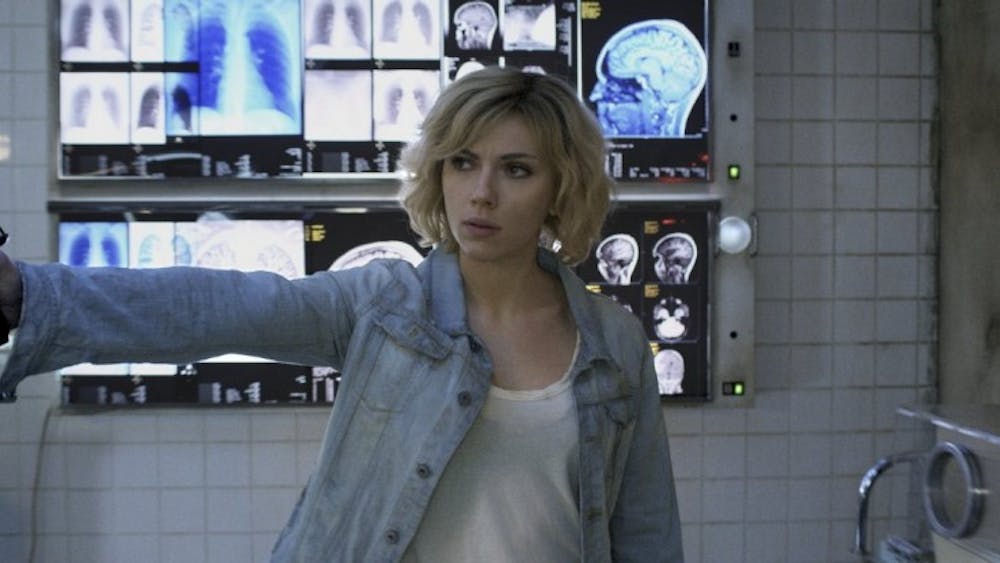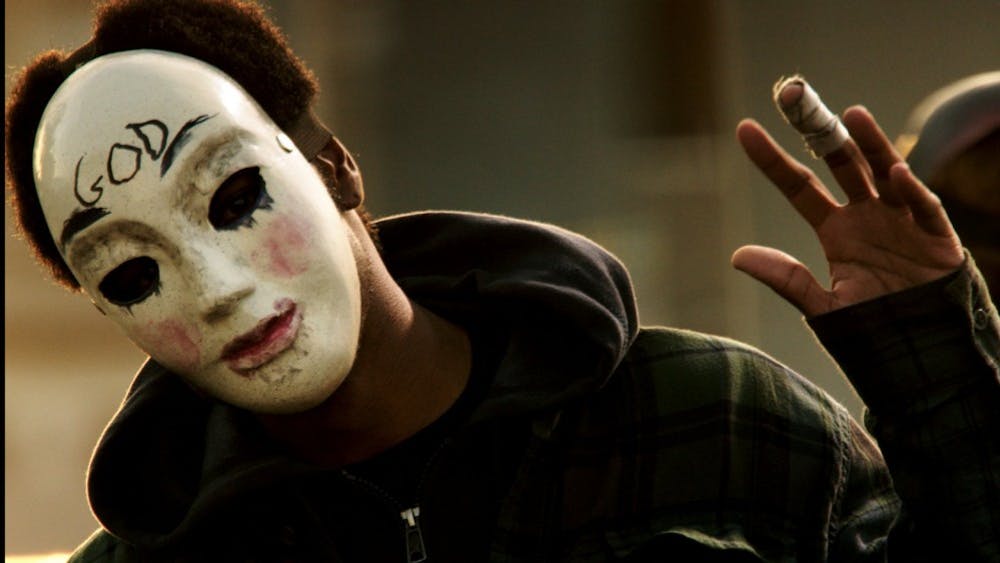In the strobe-lit, mirror-endowed empty corner of a discotheque, the pieces of a man's existence crash to the ground one by one in the calculated chaos of his dance moves that accompany Corona's techno-pop work "Rhythm of the Night." All the stagnant conformity of the French Foreign Legion life he has led has been peeled away to reveal the inner insanity of his loneliness. \nThe writhing man, Galoup (superbly performed by Leos Carax-regular Denis Lavant), was Chief Master Sergeant of a group of French Foreign Legionnaires posted in the African locale of Djibouti. Now he is just another man. But this sequence, which serves up the concluding images of Claire Denis' "Beau travail," is not just any scene; it is a grand representation of man alone from a film that stands out as a rare example of pure cinematic verse. \nGaloup's descent into this madness begins with the arrival of a new legionnaire Sentain (Gregoire Colin). Sentain is a model of prime masculinity; he is handsome, youthful, tall and honorable (he saves a fellow legionnaire's life). All of these traits tower over the small, aging and scar-faced Galoup, especially Sentain's valor, which has, at least in the mind of Galoup, caught the eye of Commander Bruno Forestier (Michel Subor). Galoup cannot accept such favoritism, with Forestier serving as a pseudo father, resulting in Galoup's attempt and failure to destroy Sentain.\n"Beau travail" is a film about realities, especially the realities of the legionnaires, Galoup and cinema itself. The grind of the army is transformed into body poetry by Denis and choreographer Bernardo Montet, who show the legion offering their bodies to the sun, spider-walking underneath wire and violently hugging one another.\nGaloup does not accept this sensual reality anymore, though, as he terrorizes himself about a conflict with Sentain that has no actual concrete backing in the movie's consciousness. Even the two confrontations that Galoup and Sentain have -- one with them circling around each other\naccompanied by a piece from Benjamin Britten's opera "Billy Budd" (Denis also casually based the film on the Herman Melville work) and the other in which Sentain punches Galoup in slow motion -- are coated with a subconscious, dream-like sheen.\nIn fact, "Beau travail" is essentially an elliptical cinematic fever-dream composed of lushly photographed tableaux (shot by cinematographer Agnes Godard) and minimal dialogue that form a non-linear narrative. This opens the door for multiple interpretations of "Beau travail," a piece of celluloid with rhyme and meter unlike any other film in 2000.
\'Beau travail\' has a certain \'Je ne sais quoi\'
Get stories like this in your inbox
Subscribe





